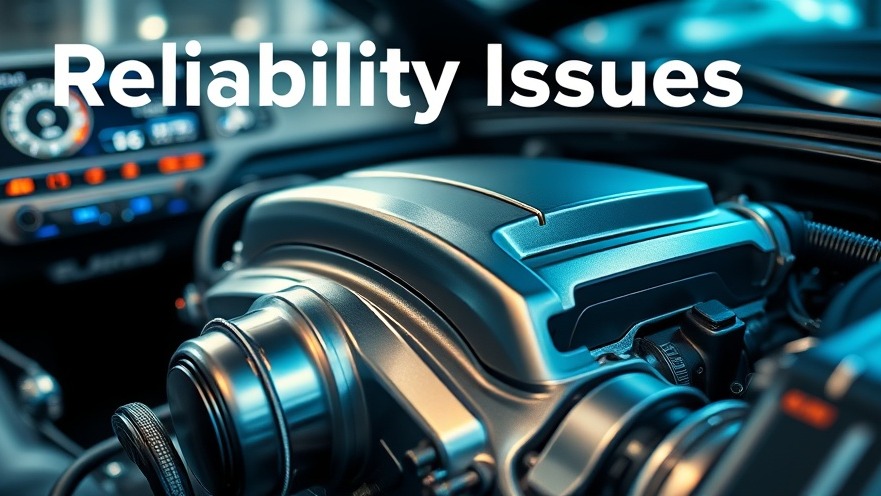
Understanding the Reliability Risks of Modern Car Features
In recent times, modern cars are packed with advanced technologies designed to enhance performance, safety, and fuel economy. However, these very features can sometimes turn into reliability nightmares, potentially shortening the lifespan of the vehicle and making repairs costly. As we dive into the journey of car ownership, it is essential to be aware of these potential pitfalls before making that significant purchase.
In WORST Modern Car Features That Lower Your Cars Lifespan & Reliability, the discussion dives into critical technological aspects of modern vehicles, exploring key insights that sparked deeper analysis on our end.
The Trouble with Turbocharged Engines
The modern trend of turbocharged engines promises better fuel efficiency and more power from smaller engines. However, these compact powerhouses often come with increased complexity and potential reliability concerns. The additional components that make up a turbocharged system could lead to overheating and increased wear on the engine parts, particularly for small engines like 3-cylinders that manufacturers often introduce to replace larger, more reliable engines. While some turbocharged engines are renowned for their durability, such as those found in Toyota and Honda models, non-turbo naturally aspirated engines typically prove to be a safer, more reliable option over the long haul.
Understanding Cylinder Deactivation Decisions
Cylinder deactivation is another common feature in modern cars designed to enhance fuel savings. This technology won’t always be a deal-breaker, but it has notable implications for reliability, especially with engines like GM’s 5.3 and 6.2L V8s, which have been known to experience significant lifter failure, resulting in expensive repairs or even complete engine replacements. Researching specific models can help car buyers avoid these higher-risk vehicles.
The Dilemma of Direct Injection Engines
Direct injection engines are praised for their efficiency, but they can introduce carbon buildup problems. The fuel-air mixture bypasses the intake valves, leading to deposits that require costly cleaning. Opting for vehicles that integrate both direct and port fuel injection can mitigate these challenges effectively.
Honda's Engine Start/Stop Feature: A Double-Edged Sword
Have you ever been annoyed by the engine suddenly stopping at a red light? The start/stop feature is intended to save fuel, but it can lead to wear and tear on the starter and other components. With some vehicles, like Hondas, facing investigations due to this feature's failure to restart, it’s advisable to either avoid it or deactivate the feature in your vehicle.
Transmission Troubles: Dual Clutch vs. CVT
Modern transmissions like dual-clutch and continuously variable transmissions (CVTs) can offer smoother rides and fuel savings, but they have garnered a reputation for reliability issues. Ford’s dual-clutch transmissions, for example, have been criticized for premature failures. Likewise, Nissan's Jatco CVTs are known for their fragility. However, many automakers have managed to produce more reliable CVTs lately. Understanding which vehicles utilize these technologies can save you headaches down the road.
Air Suspension: Luxury with a Hidden Cost
Air suspension systems, often found in luxury SUVs and trucks, can enhance ride quality but come at a price. They are prone to leaks, and repairs can be costly. Weighing the benefits against the potential future expenses is crucial when considering features that sound good on paper.
Finding the Right Balance in Modern Cars
Despite the potential reliability concerns associated with modern car technologies, it's possible to find vehicles designed for longevity. For instance, brands like Mazda and Toyota have gained reputations for reliability by using traditional engine types and avoiding problematic features, so do your homework before making your selection.
Engaging with trustworthy resources and reviews can illuminate the best choices for your needs.
With all of these insights in mind, you can confidently navigate the complexities of car buying in today’s technology-driven market. Building awareness around which features to avoid or embrace is your first step towards a reliable vehicle that stands the test of time.
 Add Row
Add Row  Add
Add 




Write A Comment